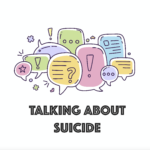
Jess Williams explores a recent systematic review which explores whether suicide and self-harm content on Instagram is dangerous or not.
[read the full story...]
Jess Williams explores a recent systematic review which explores whether suicide and self-harm content on Instagram is dangerous or not.
[read the full story...]
In her debut blog, Hazel Marzetti reviews a recent systematic review and meta-analysis on victimisation and mental illness prevalence among LGBTQ+ young people with experiences of self-harm and suicide.
[read the full story...]
In her debut blog, KCL student Melisa Eyuboglu summarises a meta-synthesis, which investigates the CATCH model (Commitment, Advocacy, Trust, Collaboration and Health) for addressing domestic violence and abuse.
[read the full story...]
Dafni Katsampa explores a qualitative study carried out by researchers in the Netherlands, which finds that experiencing an injury from a traumatic event like a serious road traffic accident, can impact on physical, psychological and social wellbeing.
[read the full story...]
Georgie Parker summarises a qualitative study which finds that therapy dogs may help to improve research engagement in “hard to reach” populations.
[read the full story...]
Jessica Bone summarises a recent meta-analysis of randomised controlled trials examining the effects of music therapy and music medicine on depressive symptoms.
[read the full story...]
In her debut blog, Natalie Berry summarises a qualitative study which asks young people about their views on using technology to detect worsening mental health.
[read the full story...]
In her debut blog, Charlotte Huggett summarises a recent online survey which explored views on the language we should use to discuss suicide. The study concludes that the most acceptable phrases are currently: “attempted suicide”, “took their own life”, “died by suicide” and “ended their life”.
[read the full story...]
A team of mental health staff from the University of Edinburgh write a joint blog on a recent qualitative study about the experience of dissociation in people with psychosis.
[read the full story...]
Anna Sri explores a recent longitudinal study exploring the links between mental disorders and intimate partner violence (IPV) perpetrated by men towards women, which finds that many psychiatric diagnoses were associated with an increased risk of IPV.
[read the full story...]